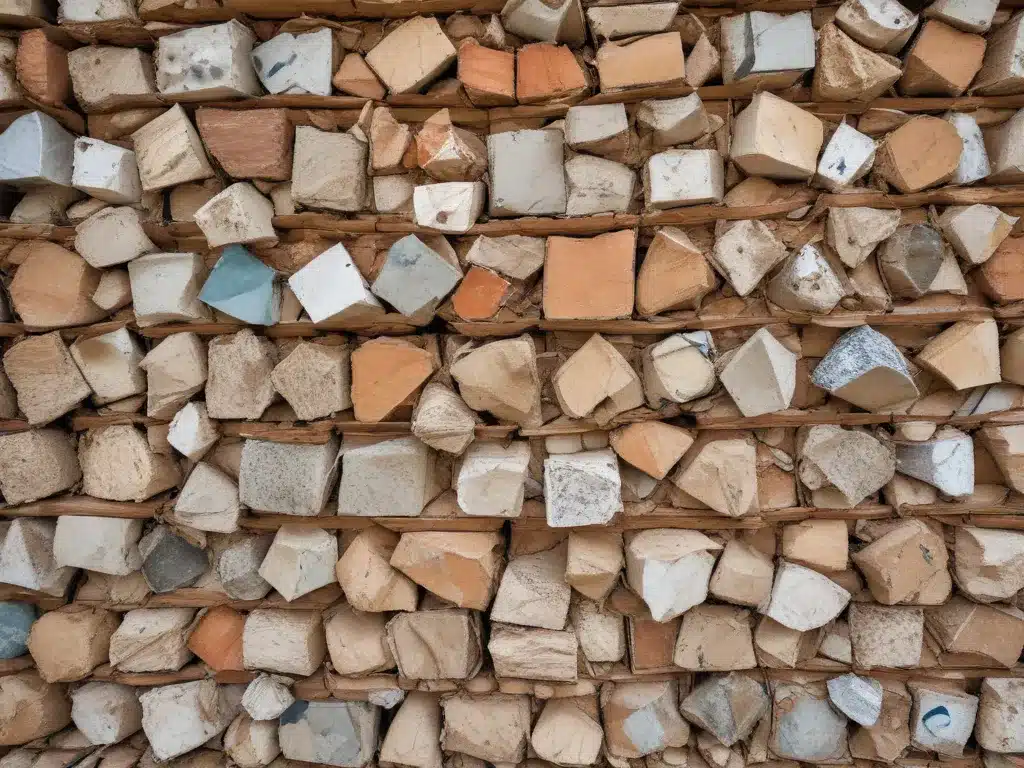
Introduction
As a homeowner or contractor, you have the opportunity to embrace sustainability and reduce your environmental footprint by incorporating recycled materials into your construction projects. Recycling not only conserves natural resources but also diverts waste from landfills, making it a win-win situation for both you and the planet. In this comprehensive guide, I will explore the various recycled materials suitable for home construction, their benefits, and practical applications.
Recycled Concrete
Concrete is a ubiquitous material in the construction industry, and its production has a significant environmental impact. However, recycling concrete can help mitigate this impact by reducing the demand for new materials and the associated energy consumption and greenhouse gas emissions. Recycled concrete can be used for a variety of applications, such as:
- Aggregate for New Concrete: Crushed recycled concrete can be used as an aggregate in the production of new concrete, reducing the need for virgin materials like gravel or crushed stone.
- Paving Materials: Recycled concrete can be used for constructing driveways, sidewalks, and other paving applications, providing a durable and cost-effective solution.
- Fill Materials: Recycled concrete can be used as a fill material for various construction projects, such as backfilling foundation trenches or creating a stable base for landscaping projects.
Recycled Plastic
Plastic waste is a significant environmental concern, and recycling plastic not only reduces pollution but also conserves valuable resources. In the construction industry, recycled plastic can be used in various ways, including:
- Plastic Lumber: Recycled plastic can be moulded into lumber-like boards, which are resistant to moisture, rot, and insect damage, making them ideal for outdoor applications like decking, fencing, and landscaping projects.
- Insulation Materials: Recycled plastic can be transformed into insulation products, such as rigid foam boards or loose-fill insulation, providing energy-efficient solutions for your home.
- Piping and Conduits: Recycled plastic can be used to manufacture pipes and conduits for plumbing, electrical, and telecommunications systems, offering a durable and cost-effective alternative to traditional materials.
Recycled Glass
Glass is a highly recyclable material, and incorporating recycled glass into your construction projects not only reduces waste but also adds unique aesthetic qualities. Here are some applications for recycled glass:
- Countertops and Tiles: Recycled glass can be transformed into stunning countertops, backsplashes, and tiles for your kitchen or bathroom, offering a wide range of colours and textures.
- Concrete Aggregate: Crushed recycled glass can be used as an aggregate in concrete, providing unique visual characteristics and improving the durability of the concrete.
- Decorative Landscaping: Recycled glass can be used in landscaping projects, such as creating mulch, pathways, or decorative elements like garden sculptures or water features.
Recycled Wood
Wood is a renewable resource, but responsible forestry practices are essential for sustainability. Recycling wood not only conserves natural resources but also reduces the demand for new lumber. Recycled wood can be used in various construction projects, including:
- Structural Beams and Framing: Reclaimed wood from demolition sites or old buildings can be repurposed as structural beams, joists, or framing materials in new construction projects.
- Flooring and Wall Paneling: Recycled wood can be transformed into beautiful flooring, wall panelling, or decorative accents, adding character and warmth to your home.
- Furniture and Cabinetry: Repurposed wood can be used to create custom furniture pieces, cabinetry, or shelving units, combining functionality with sustainability.
Benefits of Using Recycled Materials
Incorporating recycled materials into your construction projects offers numerous benefits, including:
- Environmental Conservation: By diverting waste from landfills and reducing the demand for new materials, you contribute to the preservation of natural resources and the reduction of greenhouse gas emissions.
- Cost Savings: Recycled materials are often more cost-effective than their virgin counterparts, making them an attractive option for budget-conscious homeowners and contractors.
- Durability and Longevity: Many recycled materials, such as plastic lumber and recycled concrete, are highly durable and resistant to various environmental factors, ensuring long-lasting performance in your construction projects.
- Unique Aesthetic Appeal: Recycled materials can add character, texture, and visual interest to your home, creating a unique and personalized living space.
- Supporting Local Communities: By utilizing recycled materials, you can support local recycling initiatives and contribute to the growth of a sustainable, circular economy within your community.
Incorporating Recycled Materials into Your Projects
To successfully incorporate recycled materials into your construction projects, consider the following steps:
- Research and Planning: Conduct thorough research to identify suitable recycled materials for your specific project, considering factors such as availability, cost, and performance requirements.
- Source Responsibly: Seek out reputable suppliers or local recycling facilities that offer high-quality recycled materials, ensuring that you are contributing to a sustainable supply chain.
- Consult Professionals: If you are unfamiliar with working with recycled materials, consult with experienced contractors, architects, or engineers to ensure proper installation and compliance with relevant building codes and regulations.
- Integrate Design Elements: Embrace the unique characteristics of recycled materials and incorporate them into your design plan, creating visually appealing and sustainable spaces.
- Share Your Experience: Once your project is complete, share your experience with others and inspire them to embrace sustainable construction practices by using recycled materials.
Conclusion
By incorporating recycled materials into your home construction projects, you can contribute to a more sustainable future while creating beautiful and functional living spaces. From recycled concrete and plastic to glass and wood, the possibilities are endless. Embrace the principles of recycling and circular economy, and make a positive impact on the environment, one construction project at a time.
















